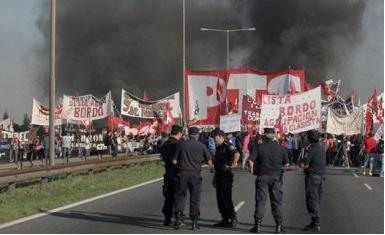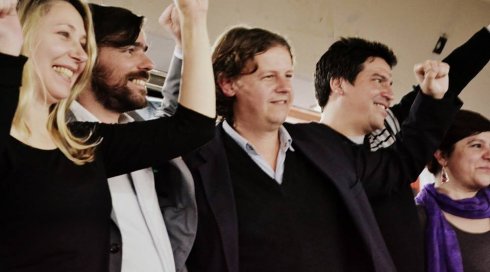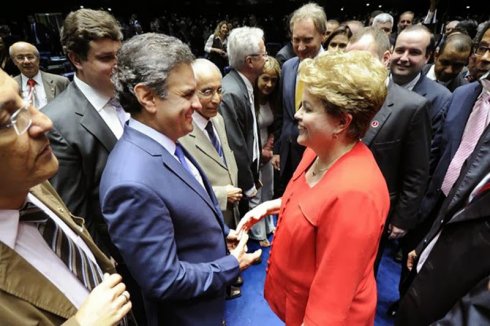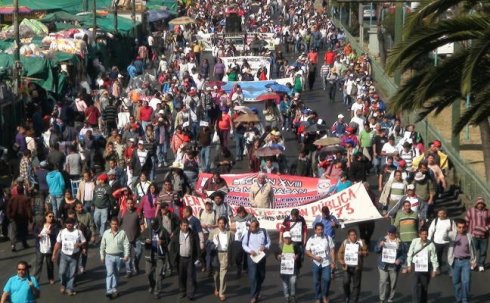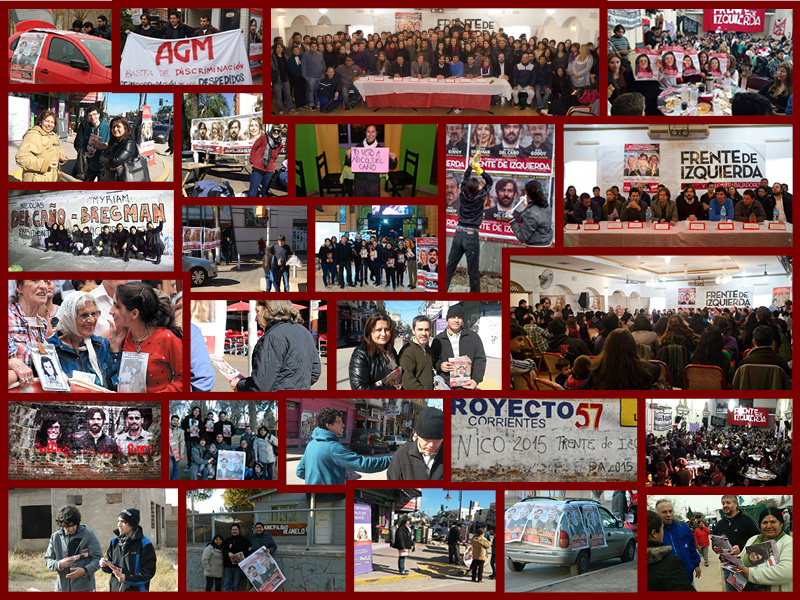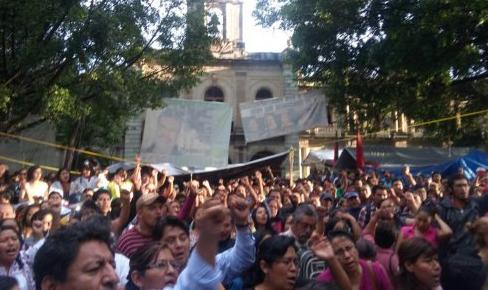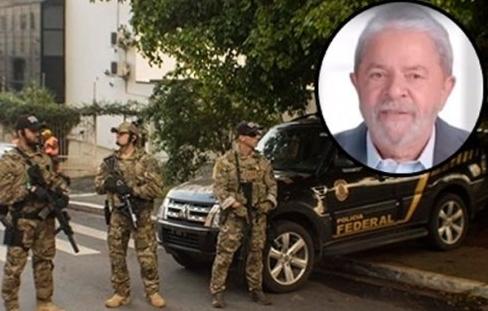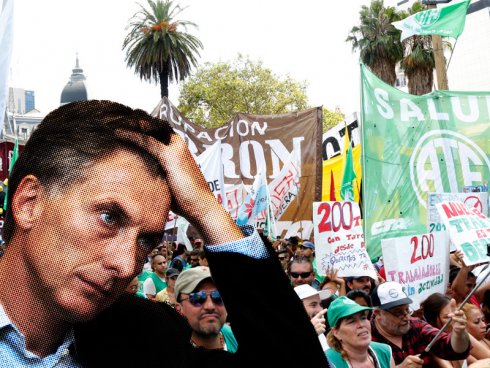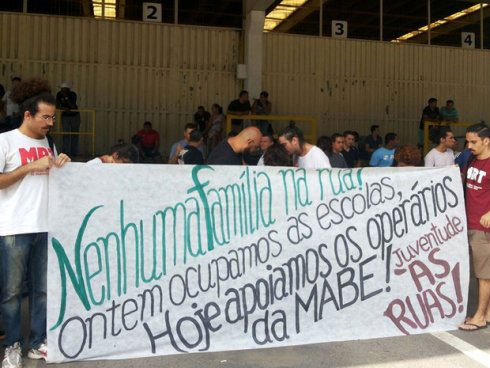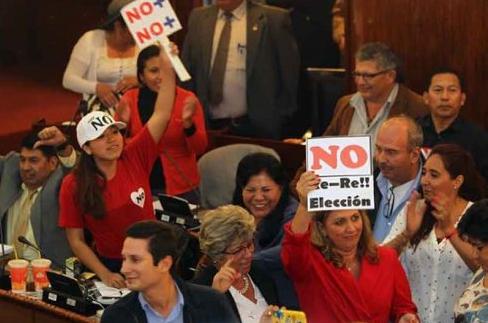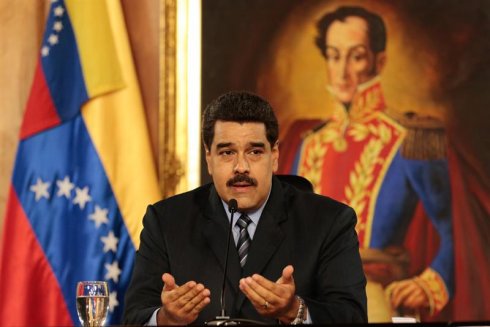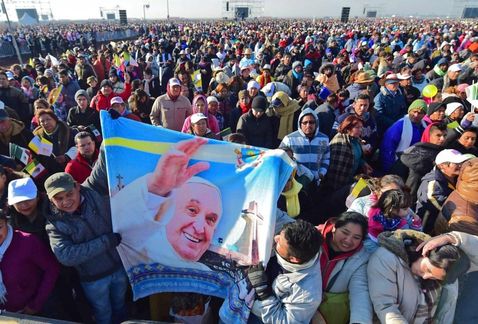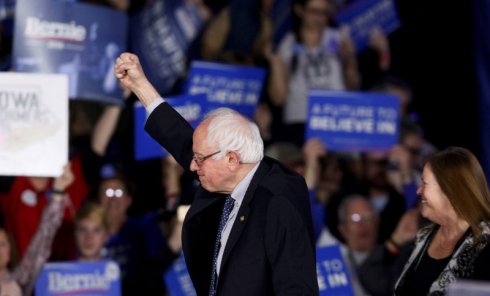Lessons from the Class Struggle in France
A New Stage Begins
22/11/2010
For nearly two months, the French workers, together with a militant movement of secondary school students, led a massive social mobilization against the pension reform of President Nicolas Sarkozy. Eight days of mass strikes and mobilizations which brought millions of demonstrators out onto the streets; renewable strikes (for an indefinite period) in strategic sectors such as the refineries and the ports, as well as (although to a lesser extent because of the law about minimum services) the strike of the train workers; countless blockades of businesses or public places and oil depositories carried out by workers and solidarity activists; and the irruption of the secondary students and a small vanguard at the universities – all this shocked the French autumn.
However, this enormous struggle, which enjoyed the very broad support of more than 70% of the population, could not prevent the National Assembly (Deputies) and the Senate from approving the reform, signed into law by Sarkozy on November 9. From now on, employees can enter retirement between 62 to 67 (instead of 60 and 65). With this measure, Sarkozy is trying to send a message to the markets, so that they do not lower the rating of French bonds, and to the capitalists, to show that despite his weakness he will not bow to the unions. But everything indicates that, despite having obtained the approval of the law, he will face stiff resistance in his aim to transform this measure into the first step of attacking other conquests.
The bureaucracy’s strategy of wearing people down
Beyond the obstinacy that Sarkozy tried to show, the main factor in the defeat was the reformist leaderships of the trade unions. At no time did the two main unions, CFDT and CGT, demand the withdrawal of the law. They were content to demand that the government enter into negotiations. The CFDT and the CGT, along with the rest of the organizations that formed the Intersyndical (Solidaires, CFTC-CFE/CGC-UNSA-FSU) and FO, had a strategy of wearing people down with isolated days of action which were spaced out almost randomly at the moment of greatest radicalization, which led to the isolation of the sectors on strike and to their collapse. Thus, the massive days of mobilization were losing strength and power of attraction, as shown by the last day of action on November 6. The call for a new demonstration on November 23, after the law had already been passed, is part of this same flawed strategy of "pressure". In this way, they blocked the tendencies toward a general strike which were posed by the renewable strikes by different sectors of the workers, and allowed Sarkozy, despite his weakness and the great unpopularity of his government, to get the law passed.
Embryonic tendencies towards self-organization
In addition to the blockades and the renewable strikes by key sectors of the workers, such as at the refineries, although the national trade union leaderships did not call for a strike, another element that showed the potential of the struggle was the tendency towards self-organization that emerged, albeit belatedly, in the course of the process. This tendency was expressed in the Interprofessionelles, whose characteristics varied by region and city. In these Interprofessionelles, the best activists from the various sectors on strike met, in many cases together with secondary school youth and the university vanguard, to discuss local actions and seek links of coordination at the zonal and even national level, which culminated in the meeting of November 6 in Tours with 22 delegations from all across France. Among these, the most advanced was in the port city of Le Havre, which in the most critical moments came to acquire elements of a coordination of the committees and the sectors on strike, attended the Interprofessionelle with mandates, published 17 strike bulletins until November 5 and gathered nearly 20,000 euros for the strike fund.
Although these tendencies were embryonic (even though more extensive than in the strikes of 1995) and could not overcome the fragmentation of the trade union representations or present an alternative to the false "trade union unity" with those who betrayed the struggle, they are an important experience for future struggles.
A profound process
Despite the defeat suffered, the vote on the bill is unlikely to be sufficient to close the profound process that this struggle has shown, with the entrance onto the stage in a powerful way of key workers from the private sector, combined with the explosive role of the secondary school students, a convergence which frightened the government, the bourgeoisie and even the leaderships of the trade unions.
Although the trade union leaderships could impose a return to work in key workplaces such as the oil refineries or the waste collection companies, this task was by no means simple for them. To give some examples: workers at the port terminals of Fos-Lavera (Marseille) were on strike for 33 days, voting to return to work only on October 27; at the Donge refinery of the Total Group, the trade union bureaucracy had to employ a secret ballot to end the strike on October 28, as well as in other refineries. Similar reactions were had by workers at the waste collection company in Marseille, who reluctantly agreed to the order from FO to end the strike which had seriously deteriorated the sanitary situation, in the face of pressure by scabs of the "sacred union" of the right and the PS itself.
Among the refinery workers, where assemblies that voted to continue the strike had been massive, the mood is one of anger. As expressed by an article in the newspaper Le Monde, "Strengthened by their new solidarity, the workers do not want to give up, despite the return to work" (29/10).
More generally, in the private sector of small and large companies, most of whose workers did not go on strike, the overall movement seems to have provided new inspiration which can encourage future struggles about wages, working conditions and restructuring (closures and layoffs), as feared by some sectors of the capitalists. As the researcher Evelyne Perrin says: "What is radically new is that private sector workers entered onto the stage en masse for the first time, and where they had the power to block the economy (oil refineries, ports), they exerted it with determination and exceptional durability (...) Using this decisive power, this ability to block, which was new, has brought a new vision." This strong impulse has led symptomatically to some sectoral demands in certain workplaces and even now, despite the new stage, public sector workers such as at the Pole Emploi agency conducted a strike with a high level of participation, and very neglected sectors, such as temporary, non-teaching personnel at the the elite school ENS in the heart of Paris are demanding the transfer to permanent contracts and salary increases with the support of the students, a conflict in which students and former students of the CTR (Collective for a Revolutionary Tendency) of the NPA (New Anti-Capitalist Party) are playing a prominent role.
The will of the majority of workers and youth to say "Basta", to not let the pension reform pass (the first of a series of reforms and attacks that will mean a qualitative leap in the worsening of their living conditions), changed the air of these times. This change is profound and it is difficult to divide it from the end of this stage in which Sarkozy can show that he triumphed – but at what a cost!
The extreme left was not an alternative to the union bureaucracy
Faced with such social movements and the reformist pressure politics of the trade union leaderships, the French "extreme left" was no alternative. Lutte Ouvrière (LO) was opposed to raising the slogan of a general strike and throughout this entire conflict had a policy of tailing the trade union leaderships and completely subordinating to them. In the editorial of November 8, its leader A. Laguiller continued saying that "the trade unions, due to their successive calls for mobilizations, have allowed the movement to emerge." Their balance sheet is not that the defeat is due to the politics of the reformist leaderships, but that this enormous mobilization is taking place in the context of a relationship of forces unfavorable to the workers, although the situation recently might have begun to change a little bit…. They argue in this way despite the great unpopularity and weakness of the Sarkozy government and especially despite the massiveness of the protest movement that just shook France.
As for the New Anti-Capitalist Party (NPA), while many militants were involved in the first line of the blockades and the official position was for the withdrawal of the law and the expulsion of Sarkozy, their orientation was not centered on the call for a general strike and in practice there was no unified political direction. Their spokespeople such as Alain Krivine and Olivier Besancenot did not make the slightest public criticism of the politics of the reformist trade union leaderships. Nor was it the orientation of the leadership to actively promote the movement of interprofessional assemblies, except in some sectors.
We who form the Collective for a Revolutionary Tendency (CTR) of the NPA participated in the process with all our forces, clearly stating the need of the call for a general strike in the fight against the reform and against the government of Sarkozy, the need to extend self-organization through general assemblies, strike committees and interprofessional coordinations with mandates, the unity between workers and secondary school and university students as part of an orientation to overcome the divisions and the pressure politics of the official leaderships. This is part of our struggle to move toward a revolutionary NPA, rooted in the working class and the youth.
Translation: Wladek Flakin, RIO, Berlin (www.onesolutionrevolution.org)
